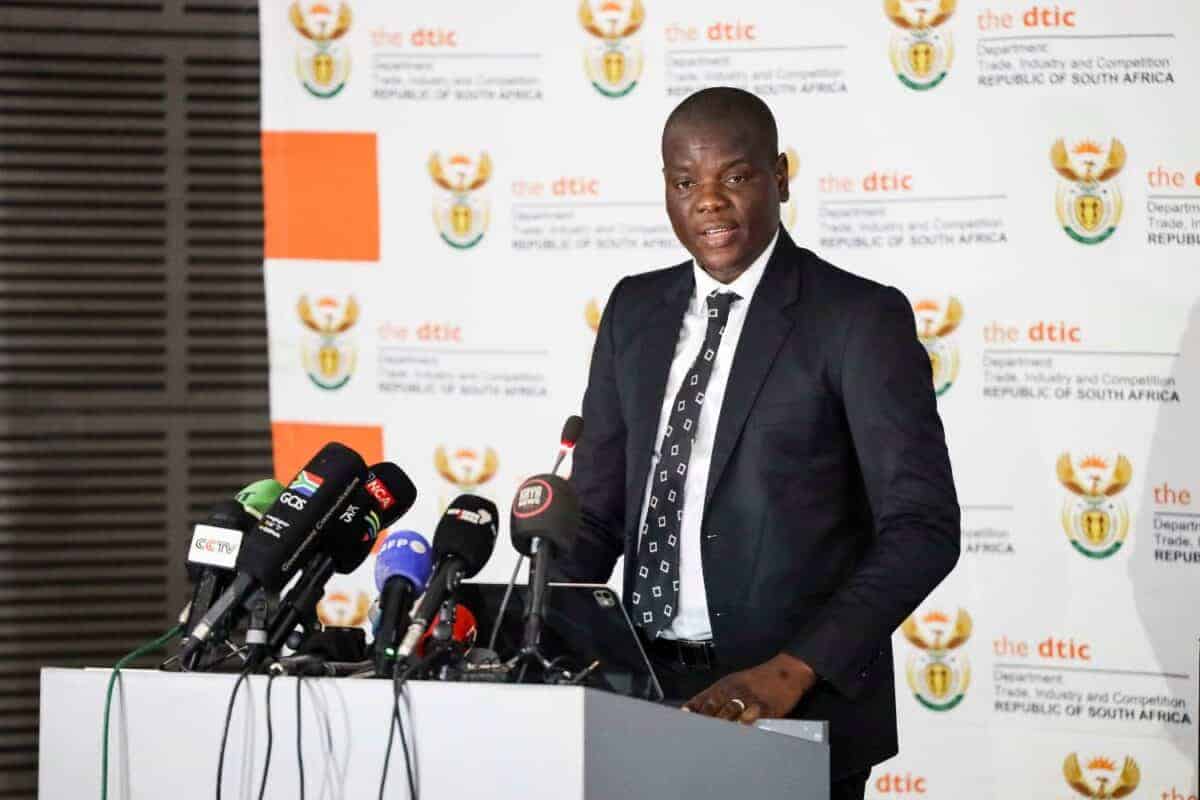Lamola distances political issues from trade talks, saying empowerment policies are not being discussed with US officials.

Ongoing negotiations on a trade deal with the US have not included any discussion about political issues, including broad-based black economic empowerment (B-BBEE) or affirmative action, says International Relations and Cooperation Minister Ronald Lamola.
At a media briefing yesterday, Lamola emphasised on a number of occasions that those issues had “not been brought to the negotiating table”.
He said despite some “speculations” by those who had visited Washington, that these matters were critical, “those issues were not in the feedback” the US negotiators had given their South African counterparts. Nor were they in the framework being discussed.
B-BBEE not brought to trade talks table
He added: “We prefer to deal with what is in front of us…
“So, we separate facts and other things that we hear.”
Lamola appeared to criticise some groups within South Africa that may have hurt the country’s relationship with the US.
ALSO READ: US tariffs: Here’s why talks over trade deal have been ‘complex’
“It is unfortunate that this government’s efforts in resetting the relationship with the US have been undermined by some actors within South African society.”
Representatives from the DA, AfriForum, the Solidarity Movement and Freedom Front Plus travelled to the US this year to voice concerns over South African policies such as B-BBEE and the Expropriation Act.
This coincided with Trump’s executive order granting refugee status to Afrikaners, citing claims of persecution, while also cutting US financial aid to South Africa in response to the International Court of Justice case brought by President Cyril Ramaphosa’s administration against Israel.
Govt accused groups of sowing division
As a result, the SA government has repeatedly accused the groups of sowing division in the country.
Lamola has assured the public that support programmes will help offset the US 30% tariff on SA exports.
He highlighted that the US is South Africa’s third-largest trading partner, accounting for 7.5% of total exports.
ALSO READ: Government must actively manage fallout from US tariffs with trade crisis committee – BLSA
“South African exports do not compete with US producers and do not pose a threat to US industry.
“On the contrary, our exports are crucial inputs that support America’s own industrial base.
“Our agriculture exports are even counter-seasonal, meaning that they fill gaps in the US market, not replace domestic products.”
Tariffs could reduce economic growth by 0.2%
Economists estimate that the new tariffs could reduce South Africa’s economic growth by 0.2%.
However, Lamola pointed out that 35% of South African exports will remain exempt.
These include products like copper, pharmaceuticals, semiconductors, critical minerals, stainless steel scrap and energyrelated products.
ALSO READ: SA’s efforts to repair US ties undermined internally, says Lamola amid tariff fallout
He also said South African companies had already adapted to steel and aluminium tariffs that were introduced under Section 232 of the US Trade Expansion Act back in 2018.
Government will roll out several key support measures.
These include an export support desk that will act as a single point of contact for companies affected by the US tariff hike.
Support desk
The desk will provide ongoing updates, assist with exploring new international markets and connect exporters with South African embassies and high commissions abroad.
An economic relief package is also being prepared to help companies cope with short-term financial pressures and develop longer-term plans to protect jobs and production.
Support Local Journalism
Add The Citizen as a Preferred Source on Google and follow us on Google News to see more of our trusted reporting in Google News and Top Stories.








!['I've done nothing wrong... it's a profile issue because I'm Thabo Bester [VIDEO]](https://media.citizen.co.za/wp-content/uploads/2026/02/Thabo-Bester-scaled-1-300x200.jpg)